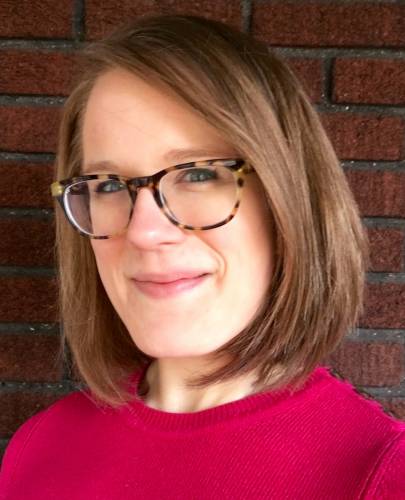Kiss of death or saving grace?
Cell biology teaches lessons of community
by Elizabeth Jeffries

Dinnertime every night was more than a meal; it was a family meeting. My parents, brothers and sister and I each shared a story about the day around the dinner table, and Dad always took his turn last. He was always looking for teachable moments, and every one of his stories included a lesson of some sort. As an attorney with a small private practice, he was familiar with life’s common pitfalls, often including bankruptcy. The story always ended with “You reap what you sow,” the evangelical Christian way of saying that whether we’re in trouble or prospering happily, we did something to deserve it.
Simple formulas like “reap-what-you-sow” are bound to break down at some point. For me, the breakdown was, ironically when our car literally broke down. One weekday afternoon during the summer I was seven, our 1985 maroon Colt Vista came to a sputtering halt. Later that night, the mechanic called with the bad news that no one talked about but everyone expected: the vehicle was broken down once and for all. Our family’s only mode of transportation was dead.
The next day, we added a new line to our family prayer list: “Pay for new car.” This line stayed on our prayer list for 9 months.
During those 9 months, I learned that “bankrupt people” who went to my dad for legal help weren’t the only ones struggling with their finances. We were struggling too, despite our frugality, despite my parents’ careful budgeting and self-restraint. What we had sown didn’t actually determine what we reaped after all.
I work in molecular biology, a world of domino effects, flow charts and traceable cause-effect relationships. One participant in our cellular choreography is a tiny protein called ubiquitin. Named for its ubiquity in all cell types, ubiquitin has no single independent function, but has a well-studied function when attached to other proteins in the cell: destroying its receptor. Ubiquitination is nicknamed the molecular “kiss of death” because it sends a target directly to the cell’s garbage disposal system.
But that’s not the only thing ubiquitin does. This protein is capable of functioning in shockingly diverse ways. In fact, ubiquitin, the molecular “kiss of death” can also be a saving grace, binding to the proteins that spool our cellular DNA strands, “physically disrupting” these spools “to allow access for DNA repair proteins” to fix otherwise inaccessible DNA breaks (1).
How can the same natural event switch between destructive and reparative functions? It seems random and unpredictable, not the way I was taught molecular biology would be.
The only way we can explain a ubiquitin-tagged protein’s fate is context. Sometimes complexity masquerades as randomness, and the inner workings of our cells are mind-bogglingly complex. Cells are often imagined as monolithic machines, but are better described as communities. These molecular communities are made of proteins, DNA, RNA and organelles interacting, intertwining and mutually influencing. These communities are diverse: long, wispy nucleic acid strands twirl around blobby proteins; tiny proteins latch onto gigantic proteins, key-shaped active regions fit perfectly into lock-shaped receptors. Each individual participates in a unified whole, coordinating and communicating to make us the way we are.
Our communal nature means that we have power and interdependence at the same time. Our actions affect our lives, just as ubiquitination, one miniscule cellular event, affects the cell’s life. But it would be nonsense to talk about ubiquitination unless we’re talking about it within its context. Likewise, it’s nonsense to talk about the effects of our individual actions unless we’re talking about them within our context – within our community. The complexity of our communal lives obscures the direct cause-effect relationships between our actions and our lives.
In this light, our shame dissipates, not into a cloud of depression and powerlessness, but because we’re part of something bigger than ourselves. I’m not the only one responsible for my future and my future is not the only future I’m responsible for. Our communal entanglement is reflected in the microscopic molecular workings of our cells, and in the ways our actions affect our lives. We choose to give, help and love not because we will individually reap the benefits, but because we, the community will reap the benefits. We are always part of something greater than ourselves.
Elizabeth Jeffries, PhD is a postdoctoral research associate in the department of Pharmacology and Chemical Biology at the University of Pittsburgh. She and her husband Mark live in the city of Pittsburgh and are part of Hot Metal Bridge Faith Community in the South Side neighborhood of Pittsburgh.
To share how you connect your faith and work, send a 500-word essay to editor@pcusa.org.